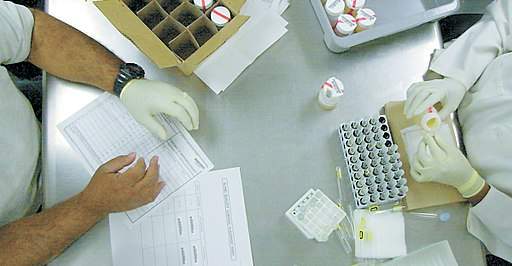
Roivant group company Urovant has begun its Phase III study for overactive bladder (OAB) drug vibegron.
Vibegron, originally licensed from Merck, is an oral beta3-adrenergic agonist which causes the bladder detrusor muscle to relax, resulting in the bladder storing urine more efficiently. The drug has already been evaluated in 16 Phase I studies, as well as an international Phase 2b and Phase III study, all of which reported positive data.

Discover B2B Marketing That Performs
Combine business intelligence and editorial excellence to reach engaged professionals across 36 leading media platforms.
The upcoming EMPOWUR trial was originally anticipated to begin last year and will enrol approximately 1,400 adults who experience OAB symptoms such as urinary incontinence, urgency and urinary frequency. Participants will be randomised into one of three arms for the 12-week period, given a daily oral dose of vibegron 75mg, placebo, or antimuscarinic mainstay tolterodine ER 4mg.
Subjects who complete the trial will have the option to take part in a 40-week extension study evaluating the safety of longer-term treatment.
The primary outcome measures will be the change from baseline in average number of micturitions per 24 hours, and the change from baseline in the number of urge urinary incontinence episodes in patients who usually experience at least one episode a day. Secondary endpoints will include changes in the frequency of incontinence episodes and urinary urgency episodes, as well as self-reported quality of life scores.
If successful in the upcoming study, vibegron will be able to move on to the next stage of regulatory applications.

US Tariffs are shifting - will you react or anticipate?
Don’t let policy changes catch you off guard. Stay proactive with real-time data and expert analysis.
By GlobalData“I am proud of our team’s efforts to rapidly launch this pivotal study for a promising therapy,” Urovant CEO Keith Katkin said.
“Overactive bladder affects millions of individuals and patients need better alternatives to the current standard of care.”
Vibegron is fast becoming a viable competitor to Myrbetriq, Astellas’s OAB treatment which was the first beta3-adrenergic agonist to reach the market for the condition. Astellas has so far found it a lucrative market, reporting a 30% boost in sales of Myrbetriq in the nine months to the end of January 2018, rising to $876 million. This increase is due to the drug’s better tolerability than that of widely used antimuscarinic OAB drugs.
Urovant was created by Roivant in June 2017, set up with a focus on urologic conditions. The rights to vibegron, its only clinical drug candidate, were picked up from Merck to save it from being shelved. It now holds the global rights to the drug, formerly known as MK-4618, outside Japan and other Asian territories. Kyorin holds the rights to the drug in Asian markets, following a licence deal with Merck signed in 2014.
In the US, OAB affects up to 46 million adults. The most common symptoms include sudden and uncontrollable urges to urinate, frequent urination and urinary incontinence due to involuntary contractions of the detrusor muscle.
Over 2,700 patients with symptoms of OAB have previously been enrolled in clinical studies evaluating the safety and efficacy of vibegron and over 2,350 individuals have received vibegron in past trials.



